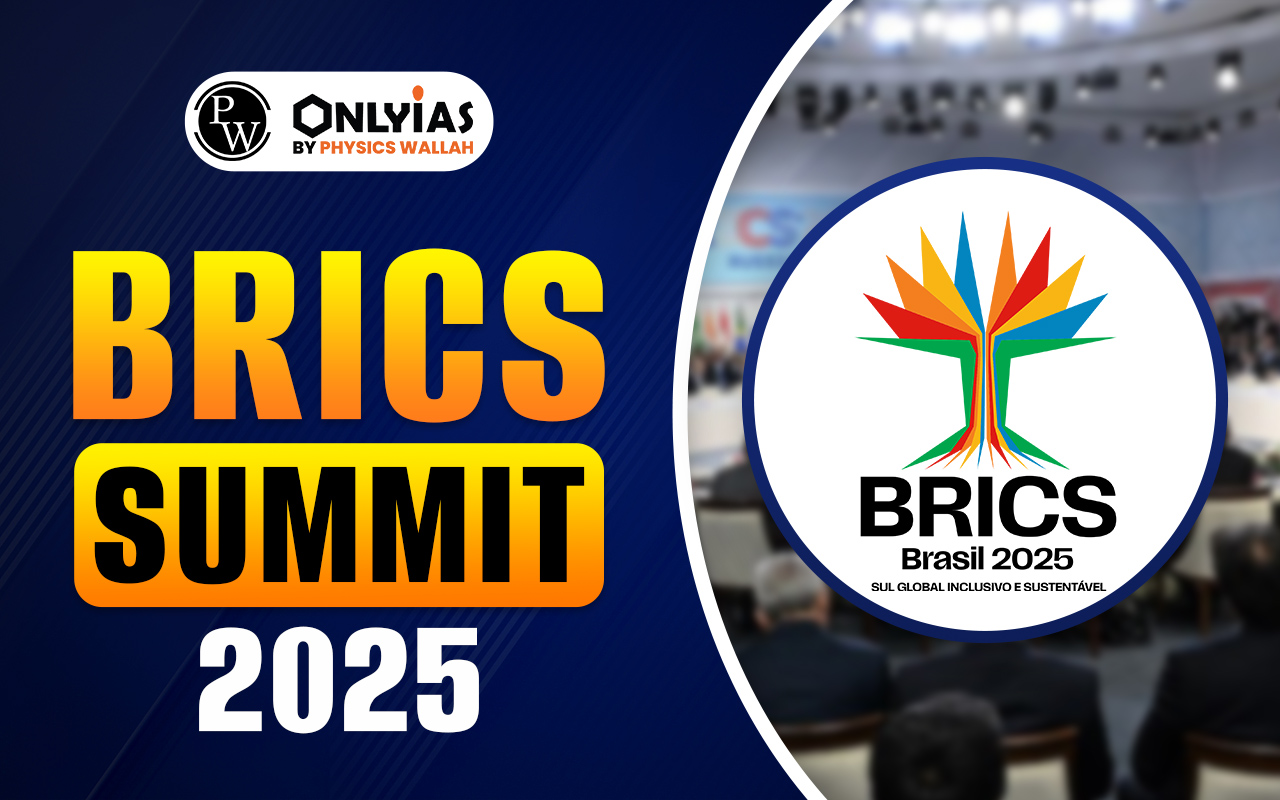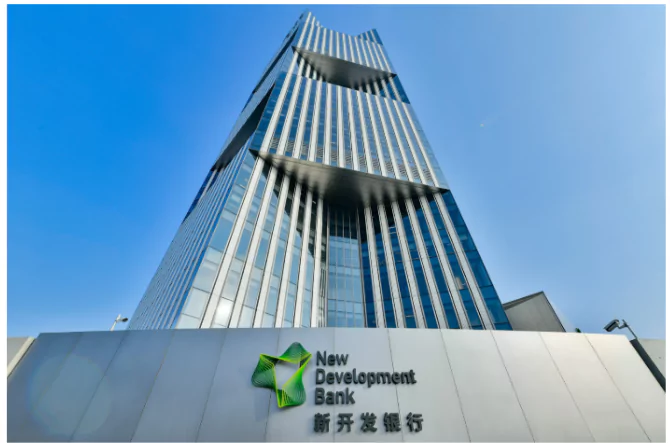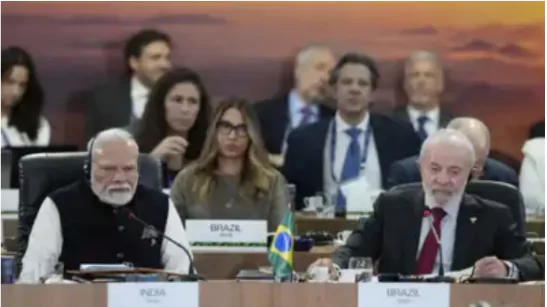BRICS Summit 2025, hosted by Brazil in Rio, brings together 11 member nations for the 17th edition to discuss AI, climate, global governance & trade. Key outcomes include the Rio Declaration & push for Global South cooperation.

BRICS Summit 2025 marks the 17th edition of this influential forum, bringing together major emerging economies to deliberate on pressing global issues and enhance South-South cooperation. Hosted by Brazil, the BRICS 2025 host country, the summit is being held in Rio de Janeiro on 6–7 July 2025, under the central theme: “Strengthening Global South Cooperation for More Inclusive and Sustainable Governance.”
This year’s gathering gains heightened significance following the historic expansion of BRICS in 2024–2025. With 11 full members now forming the BRICS members list (Brazil, Russia, India, China, South Africa, Egypt, Ethiopia, Indonesia, Iran, Saudi Arabia, and the United Arab Emirates) the bloc now represents approximately 49.5% of the world’s population, 40% of global GDP, and 26% of global trade.
BRICS Summit 2025 is an annual meeting of the heads of state and government of the BRICS countries. It serves as a high-level platform for political dialogue, strategic planning, and cooperation among emerging economies. Discussions span areas including multilateral reform, economic and social development, global peace, climate change, and, more recently, Artificial Intelligence (AI) governance and sustainable finance.
The BRICS Summit 2025, the 17th edition of the annual gathering, is hosted by Brazil in the iconic city of Rio de Janeiro on 6–7 July 2025. Under the theme “Strengthening Global South Cooperation for More Inclusive and Sustainable Governance,” the summit convenes leaders from eleven member nations to deliberate on pressing global issues such as multilateral reform, climate change, trade, artificial intelligence, and peace and security.

Source: Wikipedia
With Brazil as the BRICS 2025 host country, this year’s summit emphasises enhancing South-South cooperation and fostering a multipolar world order.
| BRICS Summit 2025 | |
| Parameter | Details |
| Summit Name | 17th BRICS Summit |
| Year | 2025 |
| Host Country | Brazil |
| Host City | Rio de Janeiro |
| Dates | 6–7 July 2025 |
| BRICS 2025 Theme | Strengthening Global South Cooperation for More Inclusive and Sustainable Governance |
| Presiding Nation | Brazil |
| Current BRICS Members | Brazil, Russia, India, China, South Africa, Egypt, Ethiopia, Iran, Saudi Arabia, UAE, Indonesia |
| BRICS Partner Countries | Belarus, Bolivia, Cuba, Kazakhstan, Malaysia, Nigeria, Thailand, Uganda, Uzbekistan, Vietnam |
| Main Agenda Priorities | Global Health, Trade & Finance, Climate Change, AI Governance, Multilateral Peace, Institutional Development |
| Notable Outcomes | Rio de Janeiro Declaration, Global South representation push, AI and Climate frameworks |
| New Development Bank (NDB) | Multilateral BRICS development bank supporting infrastructure and sustainability projects |
| Next BRICS Host Country (2026) | India (expected) |
BRICS full form is Brazil, Russia, India, China, and South Africa; it originated in 2001 from a Goldman Sachs report envisioning these nations as the future economic powerhouses. South Africa joined in 2011, and the second major expansion occurred in 2024–2025 with six new members.
The term BRIC was coined in 2001 by Goldman Sachs to highlight the economic potential of Brazil, Russia, India, and China. The first BRIC Summit took place in Yekaterinburg, Russia in 2009. With South Africa’s inclusion in 2011, BRIC evolved into BRICS. The group underwent another major expansion in 2024–25, incorporating Egypt, Ethiopia, Indonesia, Iran, Saudi Arabia, and the UAE as full members.
From a forum for consultation, BRICS has evolved into a powerful mechanism that supports multilateral diplomacy, economic growth, and regional development. It also engages in the BRICS Business Council, Women’s Business Alliance, and P2P exchanges, adding multidimensional cooperation to its agenda.
The 17th BRICS Summit in Brazil focuses on two central pillars:
Brazilian President Luiz Inácio Lula da Silva, the current Chair, has set forth a robust agenda centred on the following six thematic priorities:
In his address, Indian Prime Minister Narendra Modi emphasised the urgency of UN Security Council reform, global action against terrorism, and promoting responsible AI. He underscored the need for inclusive global governance and thanked Brazil for the successful conduct of the summit.

Source: TOI
The summit culminated in the adoption of the Rio de Janeiro Declaration, a comprehensive document outlining shared goals, key BRICS Summit 2025 outcomes, and future collaboration paths.
Under Brazil’s leadership, the BRICS Summit 2025 Outcomes revolve around six strategic pillars:
At the summit, Indian Prime Minister Narendra Modi delivered impactful speeches on reforming global governance, AI, and the economic order. He emphasised the necessity of updating outdated institutions like the UN Security Council, IMF, and WTO, aligning with Brazil’s central theme of empowering the Global South.
One of the major takeaways from this year’s summit was the unanimous adoption of the “Rio de Janeiro Declaration”, which underscored multilateralism, sustainable development, counterterrorism, and AI governance.
The BRICS Summit 2025 marks a significant expansion of the bloc, now comprising eleven full members. Originally established with five countries, the group has grown to include several key emerging economies, reinforcing its influence on global governance, economic cooperation, and sustainable development. Below is the complete BRICS members list as of 2025:
| BRICS Members List (As of 2025) | ||
| S. No. | Country Name | Year of Joining |
| 1 | Brazil | 2006 |
| 2 | Russia | 2006 |
| 3 | India | 2006 |
| 4 | China | 2006 |
| 5 | South Africa | 2011 |
| 6 | Egypt | 2024 |
| 7 | Ethiopia | 2024 |
| 8 | Iran | 2024 |
| 9 | Saudi Arabia | 2024 |
| 10 | United Arab Emirates (UAE) | 2024 |
| 11 | Indonesia | 2025 |
Partner countries include Belarus, Vietnam, Nigeria, Cuba, Bolivia, Thailand, Uganda, Kazakhstan, and Uzbekistan.
While speculation persists around a BRICS currency, leaders clarified at the BRICS Summit 2025 that a common currency is not currently on the agenda. Instead, the focus lies on promoting trade in local currencies and alternative payment systems — a process referred to as de-dollarisation.
The BRICS bank name, formally the New Development Bank (NDB), continues to play a critical role in financing infrastructure and sustainability projects across member and partner countries. The bank aims to enhance South-South cooperation by aligning investments with environmental and developmental goals.

Source: NDB
The BRICS presidency rotates annually among members, currently held by Brazil. Following the order, India will be the expected BRICS 2026 host country, continuing the tradition of alternating leadership and maintaining inclusivity within the bloc.
The BRICS Summit 2025 stands as a landmark event in the evolving architecture of global governance. Brazil, as the BRICS 2025 host country name, has admirably steered the summit toward achieving substantial diplomatic, economic, and institutional gains. As the bloc prepares for the 17th BRICS summit and future engagements, its vision for a more equitable, sustainable, and multipolar world appears more relevant than ever.
By uniting eleven of the world’s largest and most influential developing economies under a shared agenda, BRICS continues to strengthen its position as a vital platform for shaping the 21st-century global order, from reimagining finance through the BRICS bank name to redefining multilateralism.
Ready to boost your UPSC 2025 preparation? Join PW’s UPSC online courses today!
The BRICS Summit is an annual meeting of emerging economies to enhance political, economic, and developmental cooperation across member states.
Brazil is the BRICS 2025 host country, organizing the summit in Rio de Janeiro under the theme of inclusive and sustainable global governance.
Key BRICS Summit 2025 outcomes include reforming global institutions, AI governance, climate financing, and enhancing South-South trade.
BRICS stands for Brazil, Russia, India, China, and South Africa. New members include Egypt, Ethiopia, Indonesia, Iran, Saudi Arabia, and UAE.
No, a BRICS currency is not planned. Instead, members are promoting trade in local currencies to reduce dependence on the US dollar.
The New Development Bank (NDB) is the official BRICS bank name, funding infrastructure and sustainability projects in emerging economies.

<div class="new-fform">
</div>